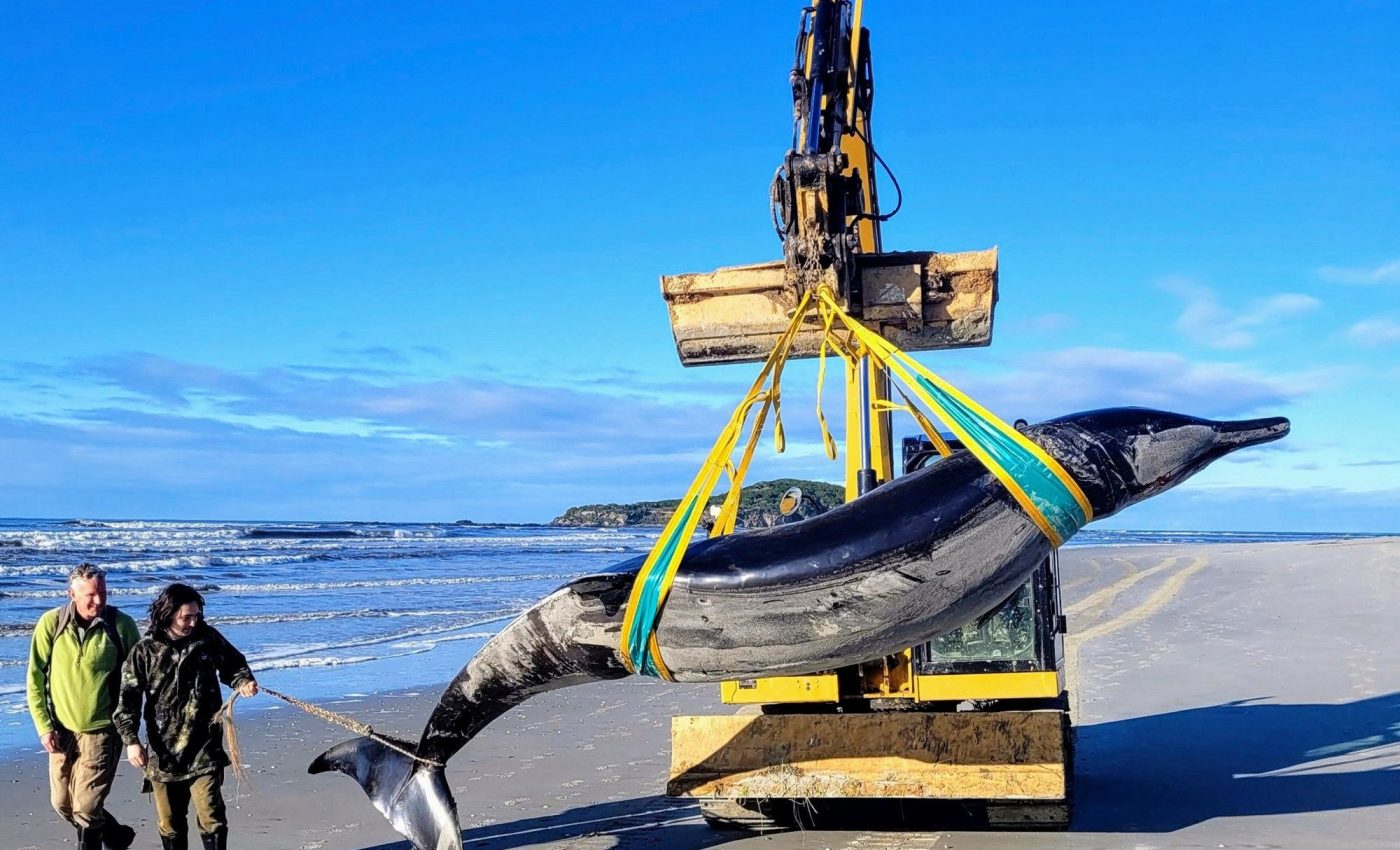
World's rarest whale found on New Zealand beach
Have you ever wondered about the creatures that lurk beneath the surface of the vast oceans, mysteries cloaked in the blue abyss? There’s one in particular that plays a game of “hide-and-seek” with scientists so well, they have never seen it alive. We’re talking about the rare elusive spade-toothed whale.
Its rare remains recently made a surprise appearance on a New Zealand beach, and the scientific community is buzzing with excitement.
Rare whale of a mystery
Scientists from New Zealand’s Department of Conservation and the national museum Te Papa stumbled upon an intriguing find this past 4th of July.
It was a creature from the depths, washed ashore near a river mouth in southern Otago province. The 16.4-foot long specimen was no ordinary sea dweller. These experts believe it to be a male spade-toothed whale, a species so rare, it has been dubbed the “Ghost of the Ocean.”
Gabe Davies, the coastal Otago operations manager of the conservation department, is very enthusiastic about the find. “Spade-toothed whales are one of the most poorly known large mammalian species of modern times.”
According to Davies, only six samples have existed since the 1800s, and five of those were from New Zealand. “From a scientific and conservation point of view, this is huge,” said Davies.
Unraveling the rare whale’s secrets
To ensure the classification is correct, a DNA investigation is currently ongoing. The body was fresh enough, providing a unique opportunity for scientists to dissect a spade-toothed whale.
The Department of Conservation said that the species is “so rare, next to nothing is known about them.”
The body has been placed in cold storage and genetic samples have been shipped off to the University of Auckland, curators of the New Zealand Cetacean Tissue Archive. It may take weeks, even months, for the DNA to be processed and a final confirmation to be made.
The significance of the whale’s rarity, according to the Department of Conservation, expands the conversation about what to do next beyond national borders. It becomes a topic of “international importance.”
Implications for conservation efforts
The unexpected discovery of the spade-toothed whale on a New Zealand beach has broader implications for conservation efforts.
Because these whales are so rarely seen, their population status remains largely unknown, making it difficult to implement effective conservation strategies.
The new specimen gives us a chance to highlight the species. It also helps bring attention to marine biodiversity.
Moreover, the data collected from this whale could contribute to international conservation policies aimed at protecting not just spade-toothed whales but also other elusive and endangered marine species.
Researchers hope this event will spur further investment in marine research and conservation initiatives worldwide.
Enigma of the spade-toothed whale
The first description of the species came in 1874 based on merely a lower jaw and two teeth discovered in the Chatham Islands off the east coast of New Zealand.
Coupling that with skeletal remains found in New Zealand and Chile, scientists were able to confirm a new species. The missing pieces are hard to come by, however.
The first intact specimen was a mother and calf that stranded in the Bay of Plenty in 2010. A further stranding in 2017 in Gisborne added one more specimen to the mix.
Significance of the study
Marine scientist Vanessa Pirotta emphasized the potential of the recent sample to offer new insights. Experts intend to study the stomach contents and genetics of the whale and compare this sample with previous ones.
This might shine a light on the behavior of these whales, their population, and reasons behind their rarity. “It’s like hitting the jackpot,” said Pirotta.
With no live sightings and so few specimens found, the spade-toothed whale is classified as “data deficient” under New Zealand’s Threat Classification System. Let’s hope that this jackpot discovery can help fill in some of the blanks in our understanding of this ocean ghost.
The story of the spade-toothed whale continues to captivate the scientific community, offering a rare glimpse into the mysterious life of this elusive marine mammal, and igniting hope for new discoveries.
Remember, the ocean is wide and its secrets are deep. Who knows what mysteries it will unveil next?
Image Credit: Department of Conservation via AP
—–
Like what you read? Subscribe to our newsletter for engaging articles, exclusive content, and the latest updates.
Check us out on EarthSnap, a free app brought to you by Eric Ralls and Earth.com.
—–













